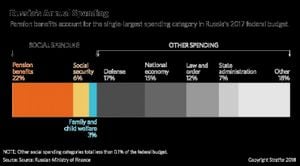TF1 Adjusts Programming Strategy For Panda Series
Changes reflect network's confidence in audience response as series continues to captivate viewers.
Fans of the police series Panda on TF1 may need to brace themselves for sudden programming changes, as the popular show shifts gears starting Thursday, January 23, 2025. Although the second season debuted with promising ratings, the upcoming schedule will feature fewer new episodes each week.
TF1 launched the eagerly awaited second season of Panda on January 9, 2025, marked by the departure of Hélène Vincent's character. The opening episodes attracted 3.19 million viewers, translating to 18.8% of the audience, and 24.0% among women under 50. This is considerably lower than the viewership figures from the premiere of season one, which had captivated 5.55 million viewers (29% audience share) back on November 30, 2023.
Following this, the network continued to showcase two new episodes on January 16, attracting even more viewers—averaging 3.36 million for those installments, equaling 19.5% of total viewership and 21.9% for women responsible for household purchases. Despite this resilience, on January 23, viewers will see only one new episode instead of two, sparking conversations about what this means for the future of the series.
The episode, titled "Rencontre du 3e âge," will welcome actor Bernard Menez, known for his hit song "Jolie Poupée," playing the role of a romantic septuagenarian. Following this new episode, the previous ones will be rerun, marking the beginning of TF1's strategic modification.
The reasoning behind this programming change appears to be twofold. Citing similarities with the practices seen during the third and fourth seasons of the hit series HPI, TF1 has opted to stretch out the engagement with the audience by airing fewer new episodes weekly. The final episode of Panda's second season is slated for January 30, 2025, and will follow this pattern, indicating the network's desire to milk the momentum for as long as possible.
While some viewers might find this frustrating, others can take it as good news for the series' future. This method of staggered episode release hints at TF1's satisfaction with current ratings and overall audience interest. The channel seems intent on prolonging the viewing experience owing to the season’s brief duration, consisting of only six episodes.
Such tactics already employed on other successful series by TF1 suggest confidence from the network. Given the promising performance overall, the prospects for Panda seem bright, especially if viewership numbers translate to healthy ratings. The continued success could inspire the network to order additional seasons, perhaps even extending the episode count, which would delight dedicated fans alike.
Actor and singer Julien Doré, who plays the lead role, has openly expressed his affinity toward the project. "I realized legitimacy resides in the joy and pleasure derived from being part of this chosen place," he shared via TF1’s website. Despite not being formally trained as an actor, he relishes the opportunity afforded by Panda. "It's particularly enjoyable because it serves as a break from my main pursuits of music and concerts,” Doré added, indicating his deep commitment to the role, reinforcing the idea of keeping the series alive and engaging for audiences.
This strategic pivot aligns with TF1’s broader vision for its programming. By gradually rolling out episodes and allowing increased time for audience discussion and intrigue, the network appears to be crafting a future where Panda not only thrives but potentially continues for seasons to come.
With one week until the finale of the current season, fans remain on the edge of their seats, anticipating whether their favorite series will return for another chapter. TF1’s handling of Panda shows how traditional television programming can adapt to modern audience expectations, retaining their viewership threatened by alternatives.



